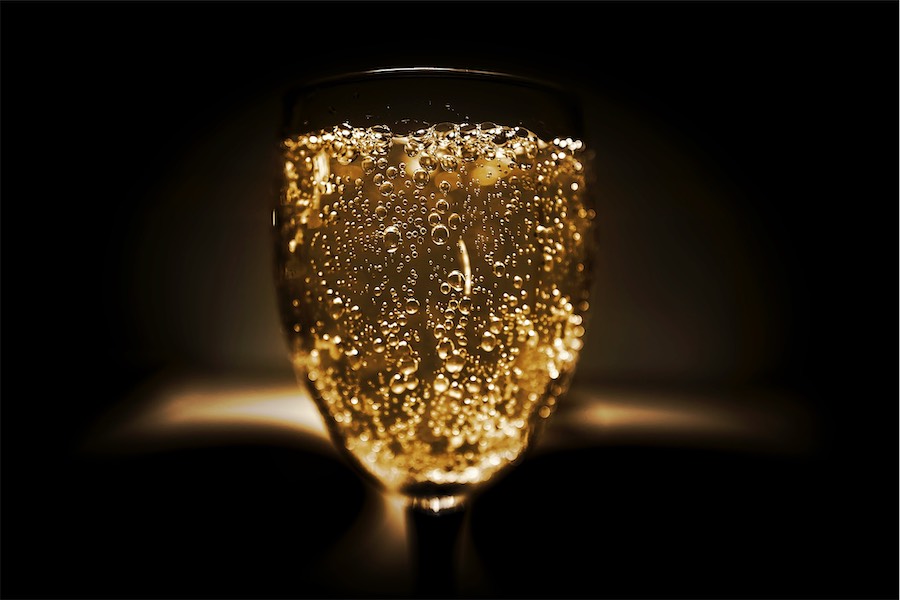
“I knew that sparkling wine was supposed to be the drink that made you intoxicated faster. But I knew not the science.” Here’s what wine columnist RICHARD CALVER discovered…
THE poet Ogden Nash once said: “Candy is dandy but liquor is quicker.” I mulled on this phrase as I sat on a verandah at a party sipping a beer (I’d driven there and set myself a parrot limit for the night – two can).

I watched a woman drinking non-vintage Yellowtail prosecco after I had assisted with removal of the black plastic top (on the wine, come on!). And I knew that sparkling wine was supposed to be the drink that made you intoxicated faster, something to do with the carbon dioxide in the bubbles. But I knew not the science. Here is what I discovered.
I started by checking a book I had borrowed from the library on food matches with sparkling wine: “Paired: Champagne and Sparkling Wine”. There at page 115 in large print is the question I had pondered and then the answer in straightforward terms:
“Does sparkling wine make you drunk more quickly than still wine?
“Yes! Studies have concluded that drinking sparkling wine of the same alcohol level as a still wine will create a significantly higher blood alcohol level after a shorter period of time due to the CO2 accelerating the speed of the alcohol’s journey through the body.”
Hmmm, I thought – the book quotes a 2001 study by a Dr Fran Ribout, but the statement doesn’t answer the fundamental question posed by Prof Julius Sumner Miller, the US physics guru and TV presenter: why is it so? Plus, I later read a number of pieces that discredited the 2001 study.
Key is what is known as the absorption rate. Alcohol absorption and its elimination from the body vary considerably amongst individuals, and are subject to influences from a variety of factors, including how full your belly is.
In 2007 Roberts and Robinson published a scholarly article measuring the effects of alcohol concentration and beverage mixer type on the rate of alcohol absorption. Twenty-one subjects (12 male, nine female) consumed a solution containing alcohol, on three separate occasions.
The three solutions were neat vodka (37.5 vol%); vodka mixed with still water (18.75 vol%) and for current purpose the one that most closely emulates sparkling wine, vodka mixed with carbonated water (18.75 vol%).
The alcohol was drunk in a five-minute period following an overnight fast (eliminating one important variable for absorption: how much you have eaten) and breath alcohol concentrations were measured over a four-hour period using a breathalyser. Amazingly, 20/21 subjects absorbed the dilute alcohol at a faster rate than the concentrated alcohol.
The difference between the absorption rates was found to be significant. In particular, the use of a carbonated mixer had varying effects on the alcohol-absorption rate. Fourteen of the 21 subjects absorbed the alcohol with the carbonated mixer at a faster rate, with seven subjects showing either no change or a decrease in rate.
Why that occurred was to remain a mystery because I wasn’t going to pay the $US39.95 to download the complete study – that’s the cost of a pretty good bottle of wine. But I found a 2013 article by a Ms Doucleff where the author had obviously paid for a complete copy of the study and, after confirming that the Ribout study was flawed, she commented:
“Adding the gaseous mixer bumped up the initial rate of alcohol absorption into the blood by about 50 per cent – on average. But this rate varied wildly among the volunteers. Three of the 21 volunteers adsorbed the bubbly cocktail more slowly than the flat one, and for four subjects, the carbonation made no difference at all.”
The theory is that carbonation increases the initial rate of alcohol absorption on average because it assists the permeability of the small intestine into which alcohol is absorbed, and assists the circulation of the blood.
But like other things that affect how quickly people absorb alcohol, it is not a universal truth: so, sip your sparkling wine and enjoy. Maybe you will be affected more quickly than if you drank still wine, maybe not.
“After the first glass, you see things as you wish they were. After the second, you see things as they are not. Finally, you see things as they really are, and that is the most horrible thing in the world.”
— Oscar Wilde, on absinthe
Who can be trusted?
In a world of spin and confusion, there’s never been a more important time to support independent journalism in Canberra.
If you trust our work online and want to enforce the power of independent voices, I invite you to make a small contribution.
Every dollar of support is invested back into our journalism to help keep citynews.com.au strong and free.
Thank you,
Ian Meikle, editor




Leave a Reply